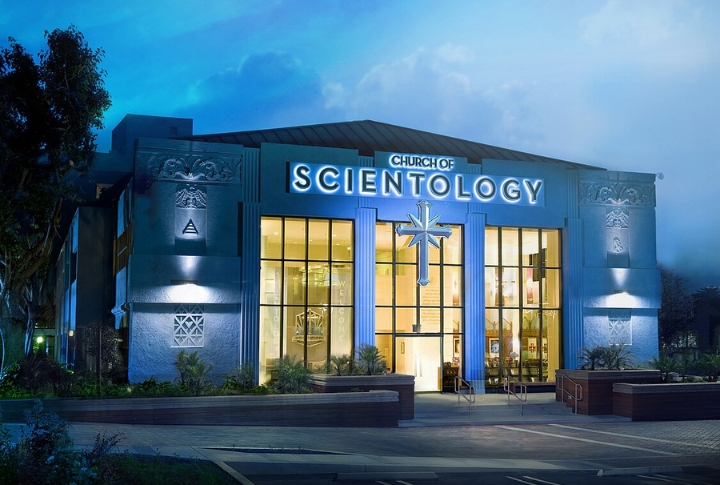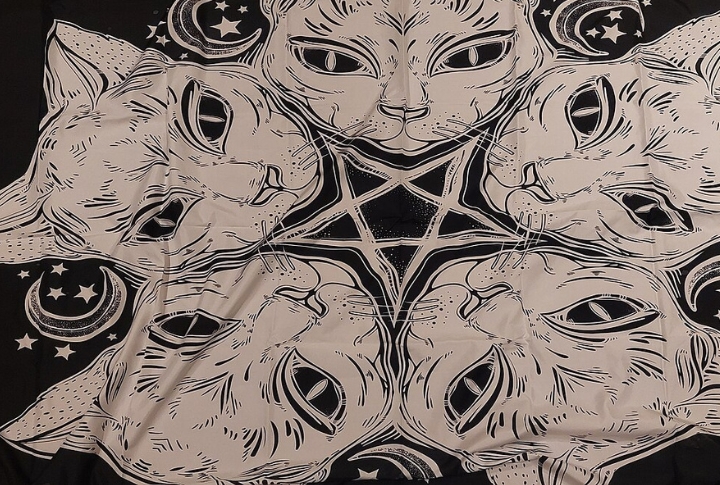
Not every faith journey starts with incense or hymns. Sometimes, it kicks off with spaghetti or a UFO. Belief can take weird turns, and some people take those turns proudly. These aren’t your Sunday school regulars. Some whisper to chaos, others bow to logic. Curious about what else counts as a religion these days? Keep reading. You might be surprised. Or confused.
Satanism

More than devil worship, Satanism centers on self-empowerment and questioning authority. It promotes rational thinking, personal accountability, and skepticism. Many Satanists don’t believe in a literal devil. Instead, they emphasize free will and a strong push against blind conformity.
Pastafarianism

What started as satire became a global movement. Pastafarians believe in a noodle-like deity and use humor to criticize religious dogma. They embrace pirate regalia and celebrate “Talk Like a Pirate Day.” This spoof religion champions secularism and critical thinking through witty protest.
Church Of Scientology

Established by L. Ron Hubbard in 1953, Scientology views humans as spiritual beings, or “thetans,” trapped in physical bodies. Relying on specific practices, followers work to overcome trauma and achieve personal clarity. Though often controversial, its focus is on self-mastery and transformation.
Wicca

Deeply rooted in nature, Wicca honors Earth’s rhythms through seasonal festivals called Sabbats and moon rituals known as Esbats. It commonly involves reverence for both a Goddess and God. Its “Threefold Law” teaches that whatever energy you release returns threefold—good or bad.
Raelism

Raelism teaches that an alien race called the Elohim created life on Earth. Followers promote peace, science, and openness to cloning and genetic engineering. They also await the Elohim’s return. This religion fuses futuristic ideals with spiritual evolution and extraterrestrial connections.
Unitarian Universalism

This inclusive faith values personal exploration over one-size-fits-all thinking. Unitarian Universalists blend insights from many traditions, like humanism, paganism, Christianity, and more. It promotes truth-seeking through conscience and experience and is known for its commitment to social justice and embracing spiritual diversity.
Discordianism

Playfully chaotic, Discordianism centers around Eris, the Greek goddess of chaos. It encourages contradiction, absurdity, and questioning of order itself. Though seen as a parody, it’s embraced by many who find meaning in disorder. Humor and irony are central to its worldview.
Theosophy

Theosophy unites spiritual wisdom from East and West and was founded by Helena Blavatsky in the 19th century. It believes in an ultimate divine truth beyond human grasp. Theosophy encourages universal brotherhood and exploring ancient knowledge to better understand the universe’s mysteries.
Matrixism

Inspired by the Matrix films, Matrixism challenges ideas of reality and perception. Followers take the “Red Pill” metaphor seriously, seeking hidden truths beyond the illusion. They explore themes of awakening and existential freedom and see their beliefs as a modern path to self-liberation.
Aetherius Society

Merging Eastern mysticism with alien encounters, this 1950s movement believes enlightened extraterrestrials help humanity. Members pray, transmit spiritual energy, and undertake “cosmic missions.” UFOs, in their belief, are tools of higher beings helping Earth evolve spiritually and avoid catastrophe.

